These New York Gardeners Are Fighting The System By Growing Food
Meet the women taking ownership of the resources that communities of color have access to.
Within New York City, many low-income neighborhoods home to people of color are polluted with an abundance of fast-food restaurants. Healthy food options are limited and often an overpriced luxury in areas like East New York or South Jamaica; instead, they seem to be reserved for the white, wealthier, and highly-gentrified parts of the city. If we want affordable, fresh, non-chemical-ridden produce, we often have to travel outside of our boroughs. Yet, some tenacious people are working to change this. Residents are coming together to establish community gardens and farms, and taking ownership of what food they have access too.
These garden spaces are more than just a place to grow food; they’re a safe haven. Somewhere that residents can foster community, create a network of support, and start to address the injustices crippling their neighborhoods: gentrification, lack of employment, police brutality, and so much more. These gardens promote agency and self sustainability; they are hotbeds for organizing and engendering political power.
The FADER spoke to three woman of color working out of gardens in New York — the Bronx and Mount Vernon — about how they are mobilizing against the system and uplifting their communities in the process.
Ruby Olisemeka, Graham School Garden
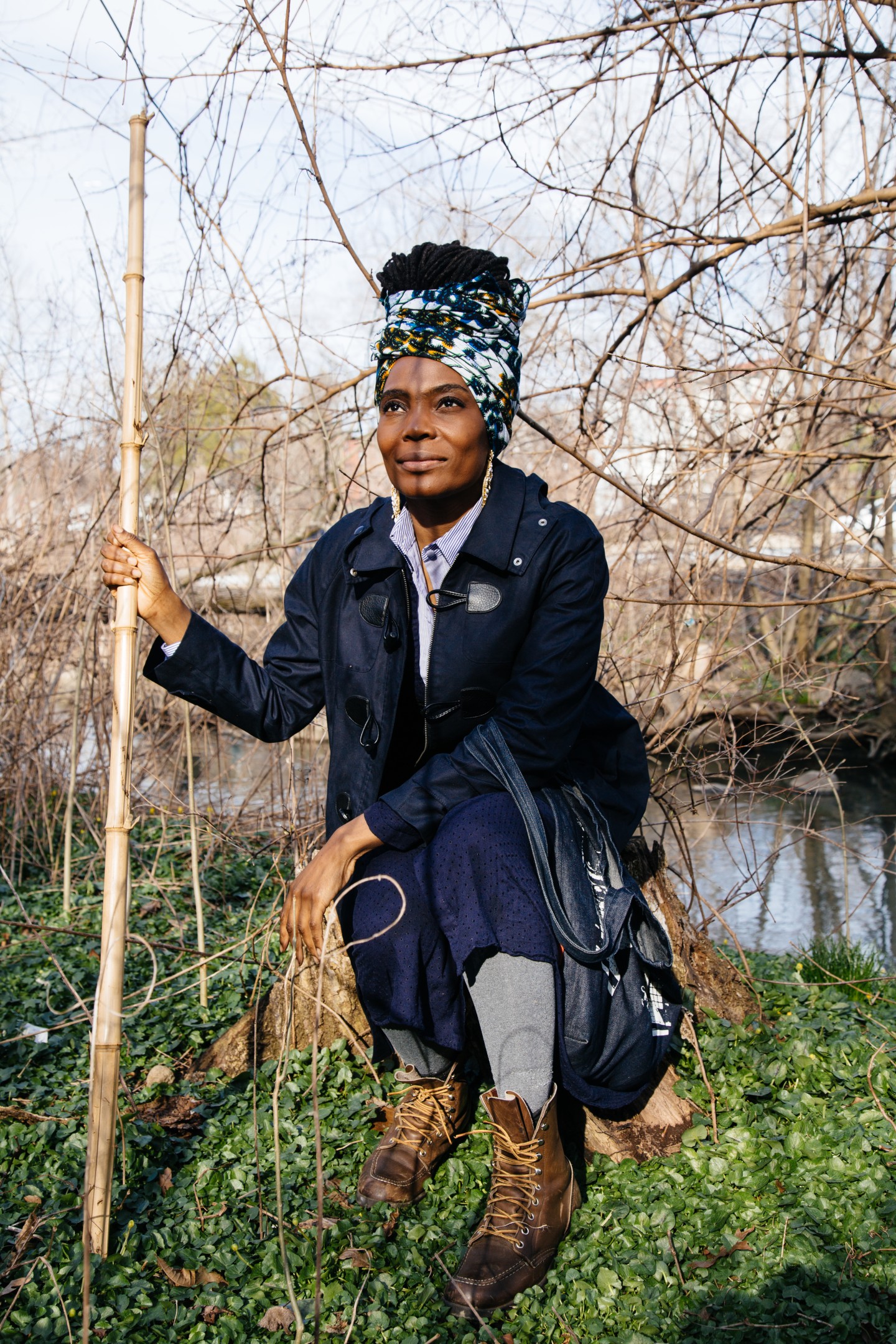 Ruby Olisemeka by the Hutchinson River, close to Graham School Garden
Ruby Olisemeka by the Hutchinson River, close to Graham School Garden
[I teach] at a pre-kindergarten to 8th grade school. It’s a title 1, majority black [school] in Mount Vernon. I think about 10 years ago, in response to a shooting on the block by the school, a bunch of elders in the neighborhood decided to start a garden on school grounds. Fast forward several years later, I become part of this garden group, and I'm like, wait, there is a school right there, let's get the school more involved. So I, the neighbors, and the school started a program last year, teaching the pre-kindergarten and the kindergarten classes rudimentary gardening. We taught 8th graders about gardening, nutrition, cooking and wellness after school. It was great but the Board of Education wanted to redo the whole entire school and demolish the garden. The 8th graders did something really incredible. They went to the board of education, and petitioned. They were like, “we want our garden and you can't just demolish it.” I think all those voices together saved the garden. They did demolish the garden anyway, but they rebuild it and we are really grateful that they did.
Having gardens in schools is very critical — there is something that happens to the human when they work with plants. When you are working with the land, you feel more peaceful, you're just happier. We are seeing a lot of black children sort of suspended in space, without understanding their past, having no idea as to where they came from, no connection to land, and increasingly a loss of connection to family, so gardening is critical.
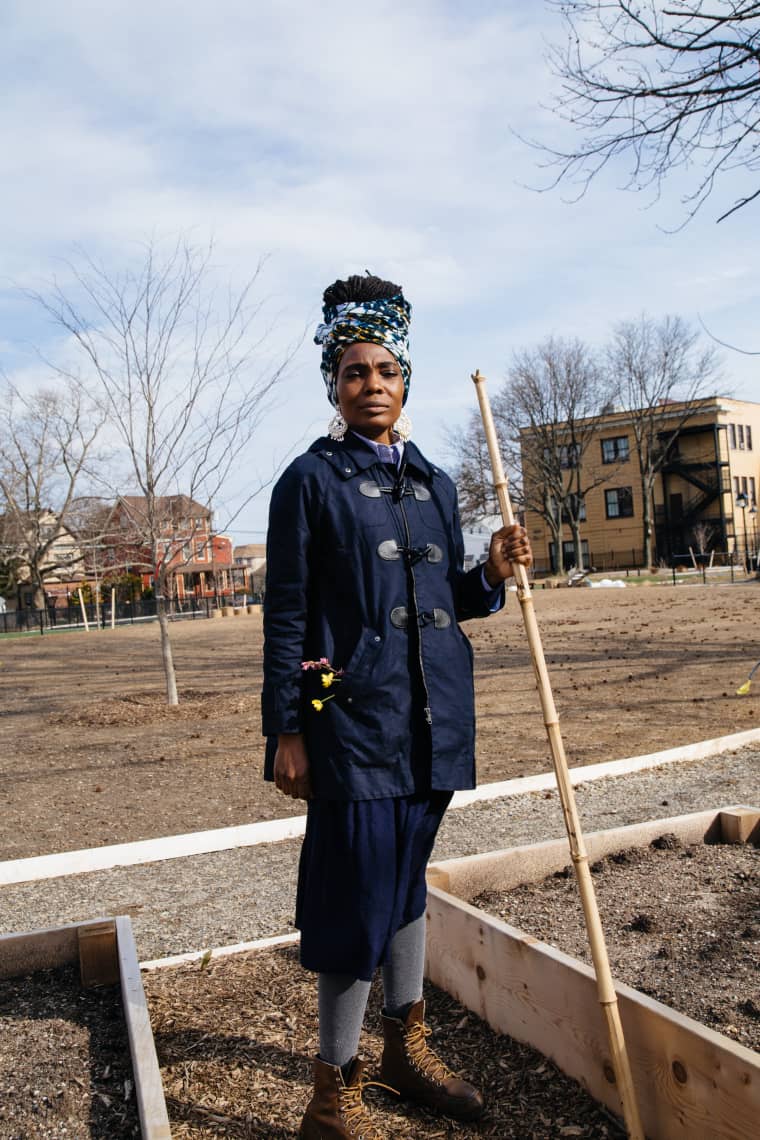 Ruby in the Graham School Garden
Ruby in the Graham School Garden
 Overgrown woods along the Hutchinson River, close to the Graham School Garden
Overgrown woods along the Hutchinson River, close to the Graham School Garden
“Within the garden, I can reconnect children with their history. It’s not so much that I need you to understand how to grow a plant, but I need to grow you.” —Ruby Olisemeka
Within the garden, I can reconnect children with their history. I can talk about George Carver, because they will not hear about George Carver within their textbooks. I can talk about Malcolm X. I can connect them to Black intellectuals. In the garden, it's not so much that I need you to understand how to grow a plant, but I need to grow you. In that space, we are free. We are not bound by the rules within the system.
In this capitalistic society that's based on individualism, we have taken farming out of its full context, but the indigenous way is that agriculture is really part of the culture; it's part of how you live. Where I am from, which is West Africa, the Yoruba's have a system of knowing nature that is called Ifá. For instance there is the African cowpea, which is our black eyed pea. An indigenous person wouldn't just look at the bean as this source of food. We go beyond that, we look at what nature is telling us through that bean. Within the garden, we take the foundational principles that the indigenous people have, which is acknowledging that every living thing has some kind of right to be in existence, and that you don't take a life or you do not encroach upon nature without asking. Farming is a spiritual practice for me, and for many others. Working with the earth is a way to fully realize manifest self, to realize that divine energy within you. When you're with a plant everyday, and you are observing that plant from infancy to adulthood, I trust that it will change you, and, for some people, it will speak to you.
Frances A. Perez-Rodriguez, La Finca Del Sur
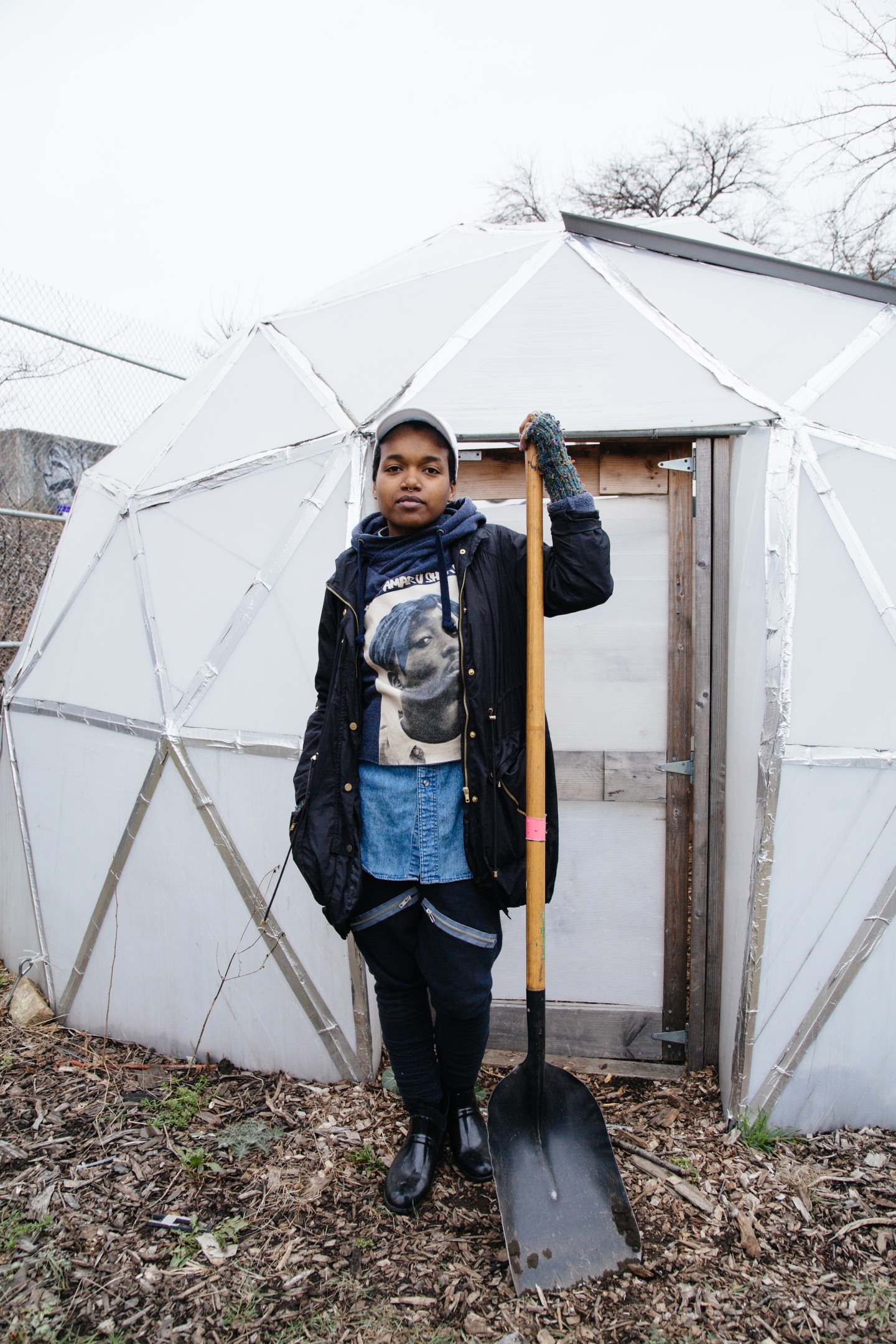 Frances A. Perez-Rodriguez at La Finca Del Sur community farm
Frances A. Perez-Rodriguez at La Finca Del Sur community farm
I spend time and volunteer hours at La Finca Del Sur, working on my own plots or on the communal plots. I went to a workshop on herbal medicine and someone from La Finca was there handing out flyers, for new member orientation. They told it me it was a Latina and Black woman led farm. La Finca del Sur translates to “farm of the south,” basically meaning farm of the South Bronx, honoring where a lot of us are from — the southern part of the planet, so the Caribbean, Mexico, people from down south in the country. It honors those traditions and honors black woman and woman of color in general, who are really on the frontline, but who are also marginalized and silenced in the food and farming world.
It's all about community building and looking out for one another and uplifting one another. We have a large Mexican population in the South Bronx, so we have a lot of dope Mexican farmers in the cut, who are growing Mexicans herbs and putting us onto their farming techniques. We have folks from down south, who are also Caribbean and they are growing different greens and herbs. So we are sharing the history and keeping those traditions alive through the farming and gardening. We don't just farm, we have healing circle events, community events, this is a community space. We've had yoga, and a bunch of different types of programing centered around us and how we get down.
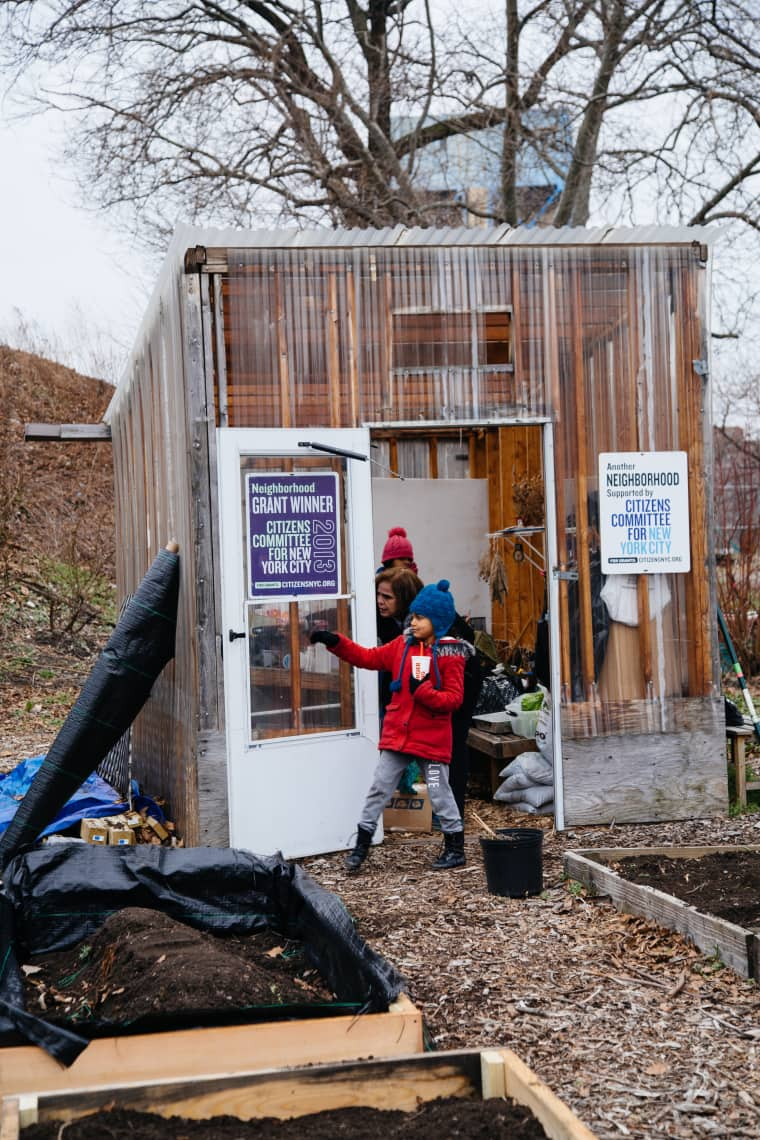 Kids pitching in at La Finca Del Sur
Kids pitching in at La Finca Del Sur

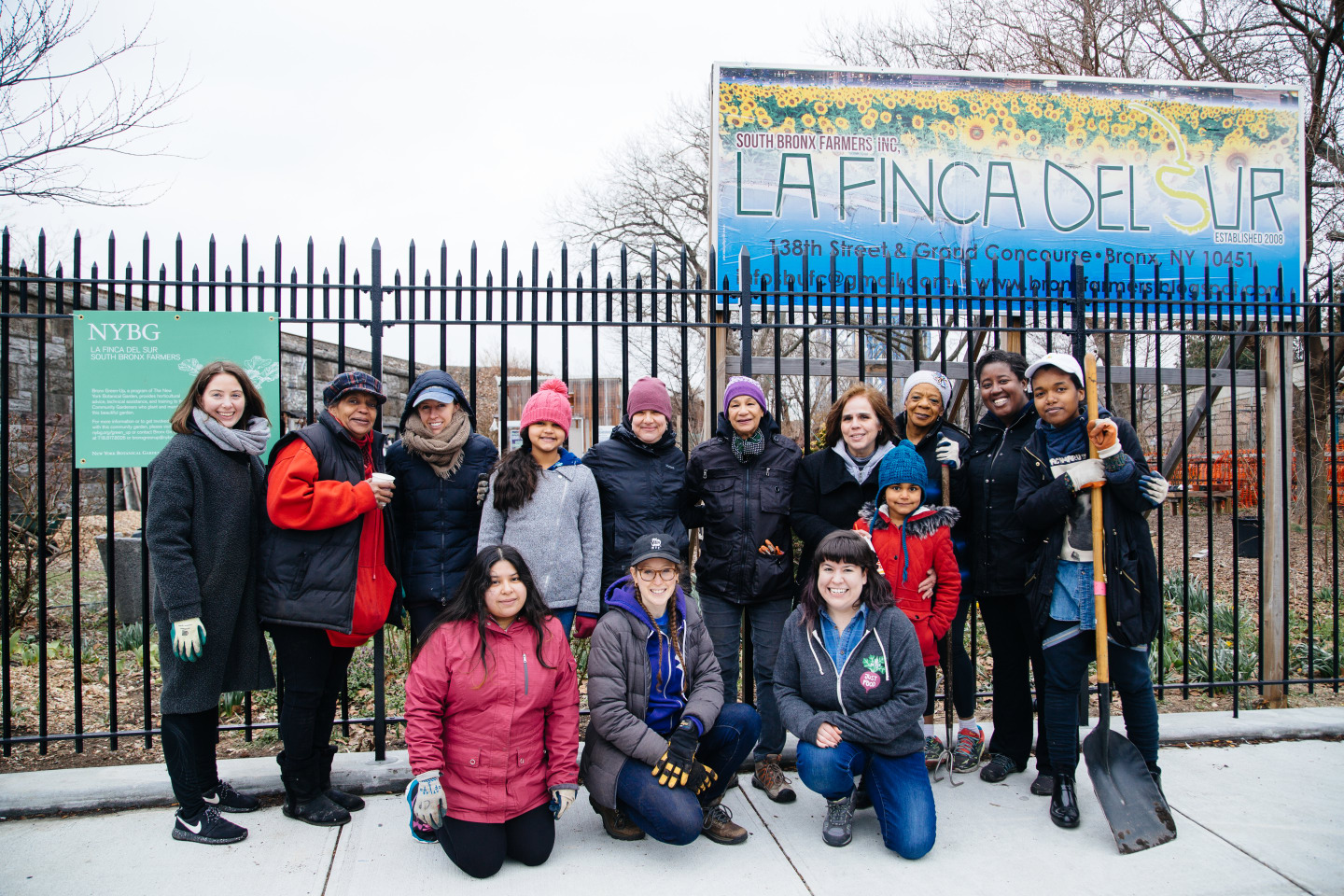 The volunteers and members of La Finca Del Sur
The volunteers and members of La Finca Del Sur
“We have a right to decide where our food comes from, and what food we have access to.” —Frances A. Perez-Rodriguez
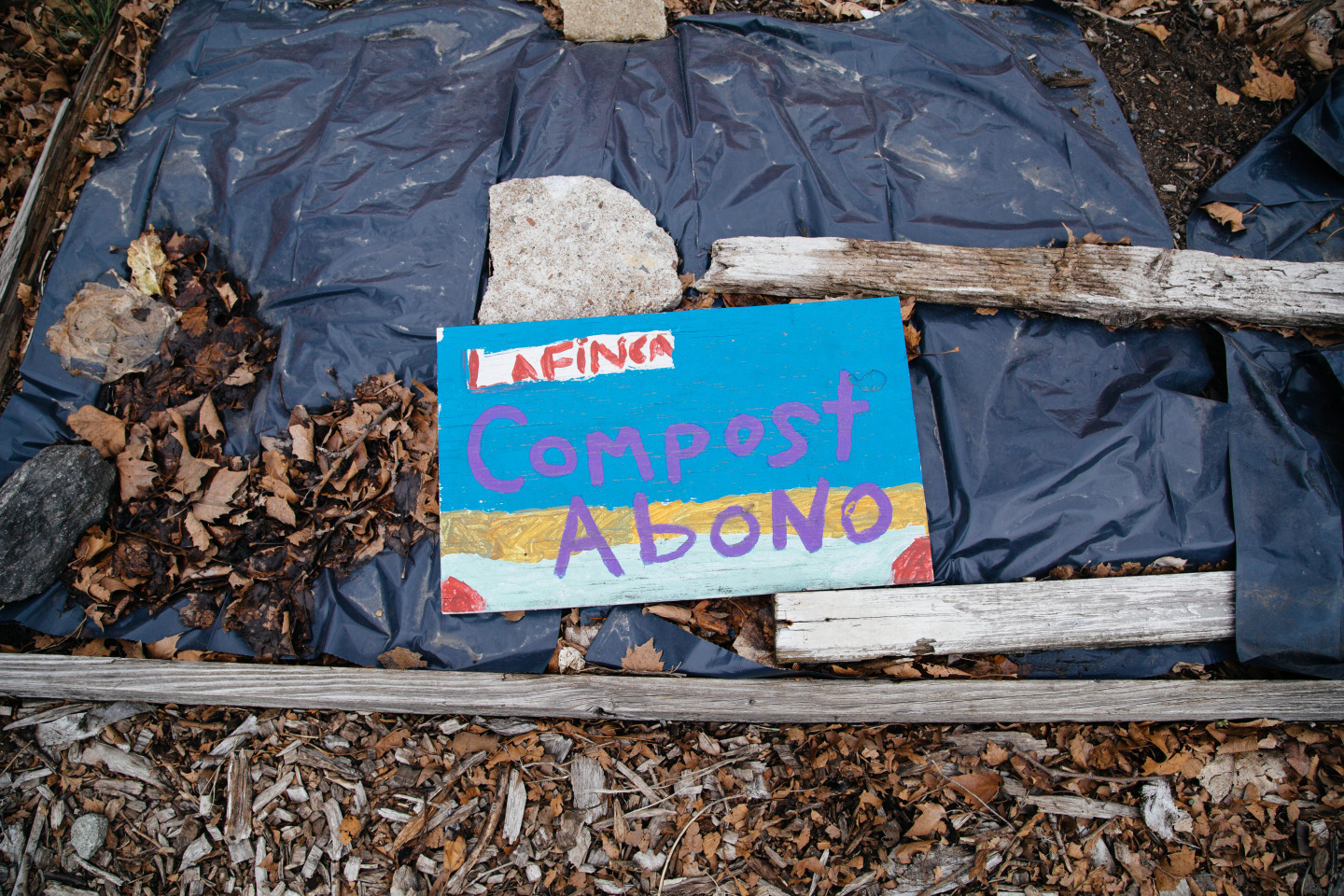
From the beginning of time, land has been taken away from people of color. When a person of color decides to reclaim land, when they decide to refuse to depend on the system for food that isn't even real, and decide to not give their money to disgusting food makers and businesses that do not care about my health, it's a “fuck you” to the system, and at the moment you are taking care of yourself and each other. You're nourishing yourself. You are connecting yourself and the people to the land. Farming for us is doing exactly what they don't want you to do, and it's making you better. It's like, we want to get healthy because we know we deserve good food, we have right to good food, we have a right to decide where our food comes from, and what food we have access to. When we start having those conversations we see the steps that we have to take. When we take them, we get closer to self-determination. That's the only way we can move away from the oppressor, if we empower ourselves and take care of ourselves.
People always say, “oh, I don't know how to garden.” Well, you don't have to be a master farmer to be involved with La Finca del Sur, there are so many things you can do. The land becomes a safe place to be. People of color always need a safe space to congregate, and the way our society is built, that's not always easy to find. La Finca is a safe space when they don't want you to have those. They're aren't cops inside La Finca. We don't have the answers to everything, we are not gonna solve hunger, but any step, any push back, is necessary.
Sajata Epps, Kelly Street Community Garden
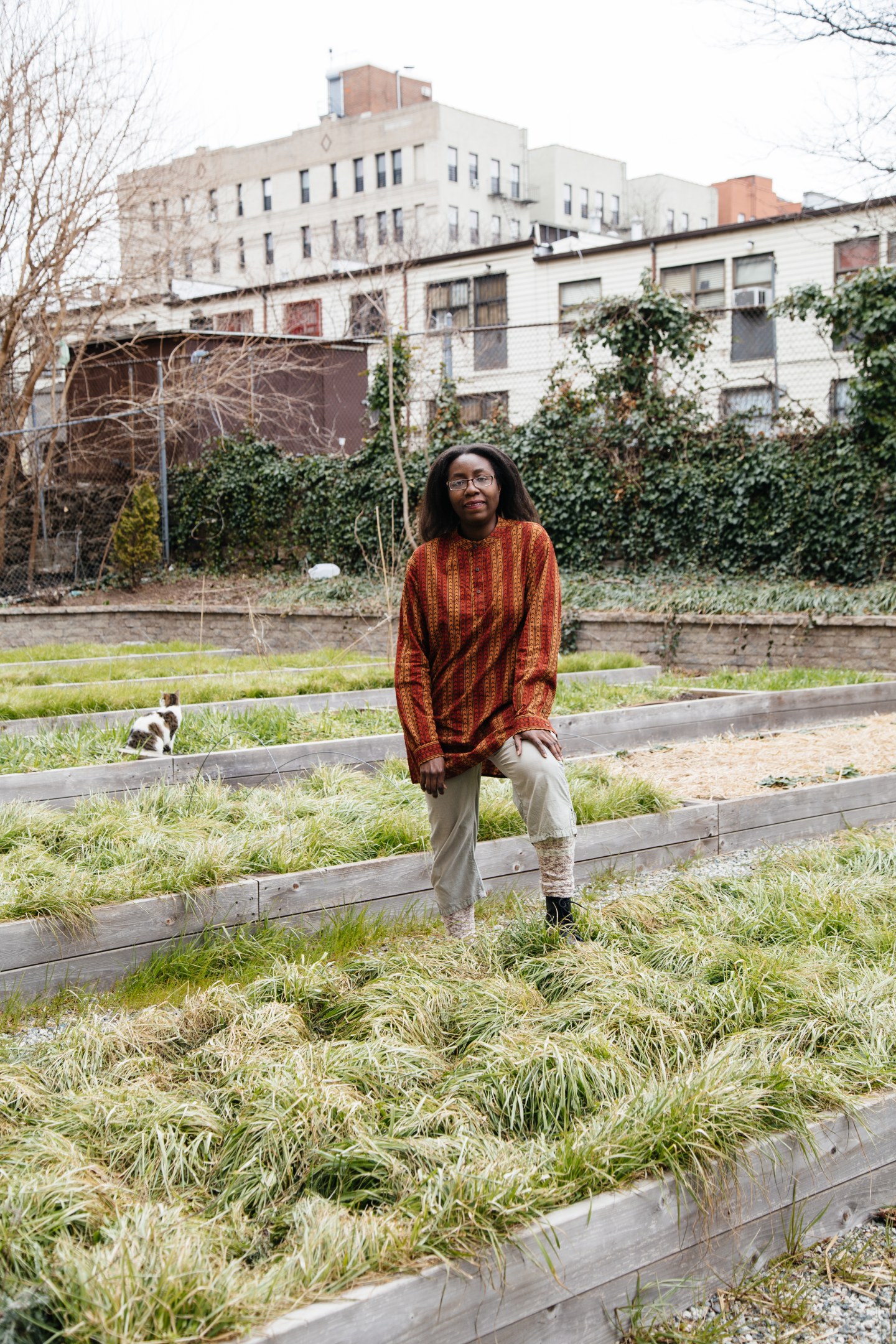 Sajata Epps at Kelly Street Community Garden
Sajata Epps at Kelly Street Community Garden
In this space, we are able to not only teach people how to take responsibility for their own environment, we can also address things like, “hey, are you having problems with paying your rent? Are you being pushed out by your landlord because of gentrification?” We can help you with that. We have different workshops that are available. We can teach you about your rights. We can teach about the law. We are able to address those things in this space, as well as address the food issue and the food justice issues that we have in this community. It was never just about growing food. Everyone in this community just needed a space to address multiple issues, and that's how the collaboration came about.
People say that [Hunts Point and Longwood] are food deserts. That's not necessarily true because we do have supermarkets, but the supermarkets are limited in what they give us. They give us food that's not the best quality. A lot of people still believe that we chose to eat one dollar hamburgers instead of getting organic cucumbers or kale. A lot of people still believe that we prefer junk food. That's not true. A lot of people within this community make under $25,000 a year, so if you give them a whole bunch of McDonald's and you're not giving them healthier options at a price they can afford, then, of course, they are going to buy a hamburger for a dollar. We want the same foods as everyone else. We want the choice.


“There’s an honor in being able to grow food for the people that you love so much in your community.” —Sajata Epps

That's something that's very important in this kind of work. It's one of the things that we have come to realize as the Bronx has become noticed, that people are giving us more of an opportunity to give us financing to invest in our own space. I've been a Bronx kid all my life and I am really happy that those who have been sustaining our farms are Bronx residents, people who have been here, who are saying, “hey, there is value in our space and we don't want other people seeing that value, and pushing us out of our space.” We can invest in our spaces. We don't need you to come in and try and take it away from us.
We are very honored by the fact that we have this garden, and we aren't the only ones. Numerous gardens are now popping up in our community. They are thriving. People are fighting for more garden spaces, because it is helping our community sustain itself. There's an honor in being able to grow food for the people that you love so much in your community.
 A hand-painted sign on the wall at Kelly Street Community Garden
A hand-painted sign on the wall at Kelly Street Community Garden